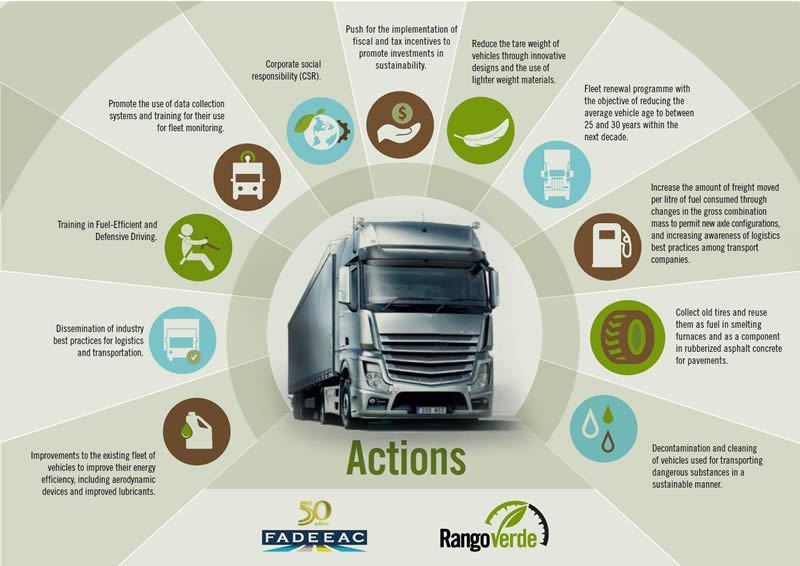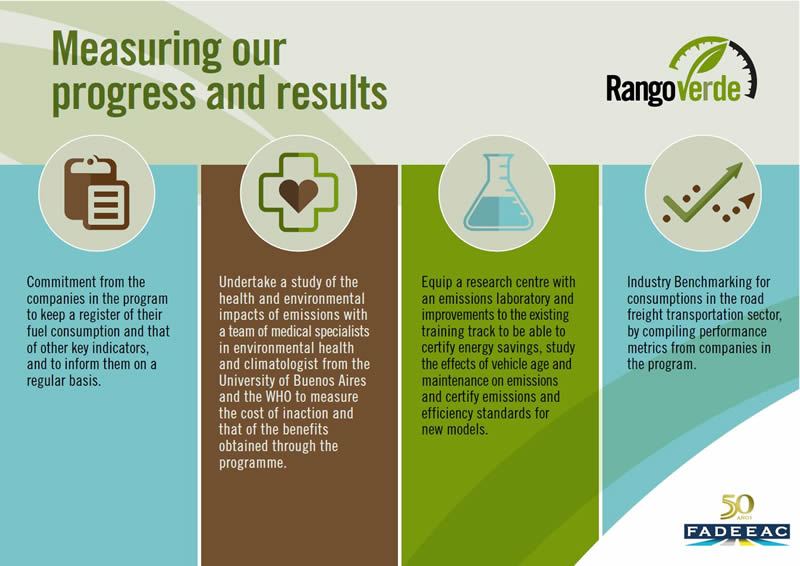Article No. 5 [UNCTAD Transport and Trade Facilitation Newsletter N°74 - Second Quarter 2017]
Sustainable freight transport: a prerequisite for sustainable development
Freight transport underpins trade and competitiveness at the national, regional and global levels. However, there is an untapped potential in the sector, as more value can be derived from freight transport by reducing oil dependency and enhancing its ability to provide access while being reliable, efficient and resilient, as well as mitigating its negative impacts on environment and climate.
Sustainable transport is thus about balancing the economic, social and environmental dimensions of the sector in an integrated manner to ensure synergies, complementarities and coherence. Sustainable transport has been recognized as a key development objective in the Sustainable Development Goals (SDG 9 and 11) and is emerging as an important development in the international sustainability and climate policy debate.
From the perspective of developing countries, challenges in the path of achieving sustainability of freight transport include:
- The high cost implied in using cleaner energy sources;
- The need to reduce significantly energy-related emissions to address global warming; and
- Insufficient investment to overcome inadequate and poor conditions of transport infrastructure and services.
Addressing these challenges require intervention measures in different policy spheres, for example:
- Strategic policies involving transport, energy efficiency and air quality;
- Fiscal and economic instruments including measures related to investment, taxation, pricing and grants; and
- Legislative and regulatory measures, such as standards, targets and other technical requirements
UNCTAD is committed to assisting developing countries in making informed policy choices to address the emerging environmental and social challenges in relation to transport strategies, and to provide associated capacity building and appropriate policy responses. From this perspective, learning about the priorities, needs and solutions from real cases and experience of developing countries can be enlightening.
Freight transport in Argentina
1. Growing demand for road transport in Argentina
Argentina is one of the world's main exporters of food products, and the agricultural sector has had very dynamic growth over the last 20 years, leading to more than 100 million tons of grain produced annually, while 15 years ago grain production was around 60 million tons.
This growth in production has been accompanied by an expansion in the agricultural frontier, leading to longer average trips to bring that grain to port for processing and export. It has also pushed development in other associated sectors, with investments in modernizing equipment and increasing productiveness in the supply chain both upstream in seeds, fertilizers and farm machinery, as well as downstream in crushing, storage and ports.
The impact from this growth has been very positive in the road freight transport industry, which moves more than 90% of agricultural production nationwide. FEDEEAC describes this growth as "scattered, with a high degree of non-compliance with regulations and using a large proportion of old vehicles which implies negative externalities regarding the environment and human health". The transport sector is the second largest contributor (30%) to greenhouse emissions in Argentina (Ministry of Environment of Argentina, 2015).
2. Reform to support sustainable freight transport systems in Argentina
Argentina has embarked in developing a strategy to support sustainable transport systems motivated by its obligations derived from the UN Framework Convention on Climate Change (UNFCCC) and the 2016 Paris agreement, which sets targets regarding reduction of greenhouse gas emissions. Argentina has embarked in this path a multi stakeholder approach. Domestically, this multi-stakeholder approach has been used to generate a solution-oriented policy debate among governmental bodies, academic and research centres, civil society, representatives of private sector and labour unions. Internationally this approach has encompassed involvement of various UN agencies and financing institutions including World Bank.
In terms of priorities for reform, Argentina is aiming at:
- Promoting a modal shift (especially to railway transport)
- Developing the use of renewable energy sources
- Reducing energy consumption
In the area of freight transport in particular, Argentina is aiming at improving the efficiency of transport, promoting fleet renewal towards vehicles that are more energy efficient, through the use of targeted fiscal incentives, among other measures.?
The "Green Range" initiative
This program was launched by private sector entities (led by FADEEAC) in 2016. It entailed close collaboration, among various Governmental agencies and among public and private sector stakeholders, to define specific actions to gradually mainstream sustainability in the planning and operations of the freight transportation industry, over a time horizon of 10 years. The overall goal is to generate more productivity while, at the same, reducing emissions.
The specific objectives of this initiative include:
- Increasing energy efficiency, to induce savings in fuel consumption. FADEEAC estimates that a reduction in costs under this item could imply a reduction of one third in the total cost of a trip by truck;
- Reducing pressure on energy resources nationally, reducing the demand for production and imports of fuel;
- Increasing road safety through a modern fleet with better road performance characteristics and
- Reduced impacts on human health and on the environment through the reduction of pollutants.
The figure below provides details about the different areas of action encompassed in this initiative.

Source: Werner, Guillermo (2017). "Rango Verde: camino a la sustentabilidad en el transporte"
The cornerstone of this initiative is the framework to measure greenhouse emissions, which will be linked in the future to a certification scheme. The program is voluntary and seeks to motivate, mainly via fiscal incentives, that transport operators renew their units and embark in measuring and monitoring the carbon footprint of their operations through a technological solution. The initiative also foresees a capacity building component for transport operators.
The figure below provides more information about the specific instruments aimed at measuring progress and results in the Green Range initiative.

References:
- Rango Verde: camino a la sustentabilidad en el transporte". Presentation by Guillermo Werner -Secretary General of Federación Argentina de Entidades Empresariales de Transporte de Carga (FEDEEAC) during the General Assembly of the Inter-American Transport Chamber in New York, 24 May 2017. Available here: http://www.citamericas.org/imagens/files/rango_verde__presentaci%C3%B3n_argentina_fadeeac__esp.pdf
- Background note by UNCTAD "Sustainable Transport Systems: Opportunities for developing countries. Doc No. TD/B/C.I/MEM.7.11 of 05.08.2015
- Secretaria de Ambiente y Desarrollo Sustentable de la Nación (2015). Comunicación Nacional de la República Argentina a la Convención Marco de las Naciones Unidas sobre el Cambio Climático.
For further information, please contact contact Luisa Rodriguez(Luisa.Rodriguez@unctad.org )



